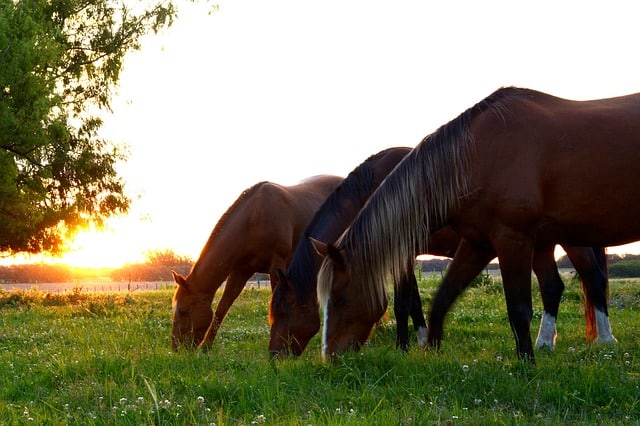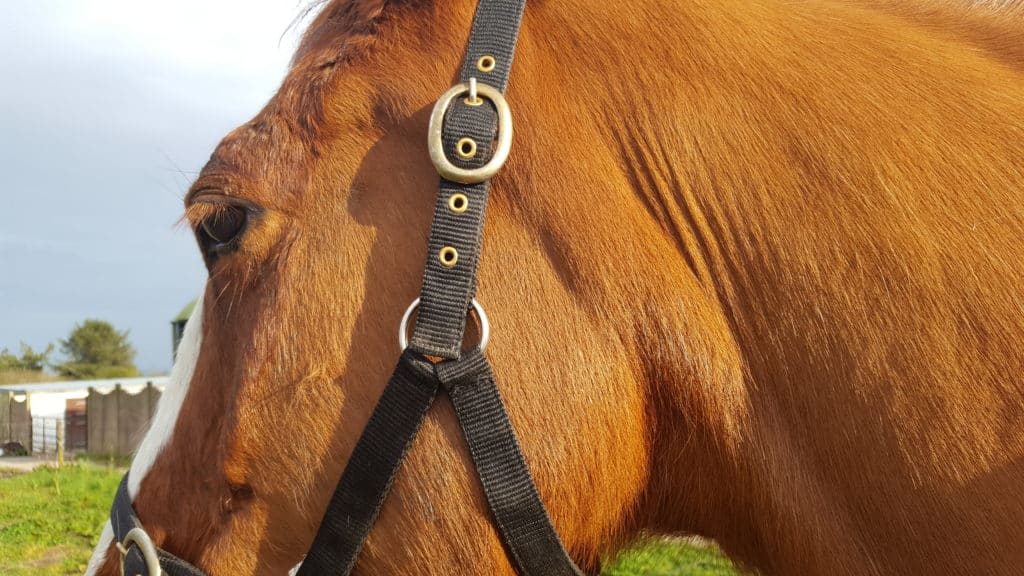As summer approaches each year, the weather gets warmer and the grass begins to grow; it is lovely to get the horses out on grass for a bit longer each day, especially as the evenings stretch with the extra day light.

Watching your horses graze happily in the sunshine is so satisfying. It is the healthiest thing in the world for a horse to be out in the paddock grazing. Right? Then you catch your large four legged friend in to realise he looks more like a greedy hamster, than a horse!
Horror, his throat is swollen! Oh my word, despite the fact that he has not been off the property, he has somehow contracted strangles! STRANGLES!!! This means loads of visits from the vet, time off and no shows for the foreseeable:-(
But wait, hold on to your horses;-) Let’s not jump to conclusions, calm down and take stock of the situation, while you Answer the following questions;
1 Did your horse have any swellings before going out to grass?
2 Does your horse seem unwell, is he off his food, and does he have a temperature?
3 Is there any nasal discharge?
4 Are the swellings hard and tender?
If you answered the questions above with a No, then the chances are that your horse has been affected by Grass Glands, also known as Grass Mumps
Grass Glands – Parotiditis The Science Bit!
Basically the Grass Glands/Grass Mumps are a result of swelling of the Parotid Salivary Glands (Parotiditis), which are located in the area just below the ear along the jaw line, where the throat lash will sit. They are usually soft and not painful and don’t seem to bother the horse.

Cause of Grass Glands.
Grass Glands are thought to be due to some sort of allergic reaction to certain grasses/pollen. It has also been suggested that it can occur with the high sugar levels with spring grass.
However, the cause of Grass Glands is not completely understood. One thing is certain, depending on how large the swelling is, it can be difficult for your horse to ride comfortably in an outline.
Treatment of Grass Glands.
1.There is no known treatment, however, feeding the horse up off the floor for a day or two can help with the reduction of the swelling.
2. Also, if possible try a different paddock for future grazing.
3. If your horse is kept off grazing for a day or two, the problem usually rectifies.
4.The horse may find being ridden in an outline uncomfortable while the swelling persists. Therefore it is probably best to lunge your horse in a head collar for a day or two until the swelling subsides.
Some other common causes of swellings in the throat of your horse area are;
- Strangles – Abscesses that form in the lymph nodes in the throat area, as a result of a bacterial infection. Strangles is highly contagious disease, and the swelling can affect the horse’s airways, causing difficulty with breathing. If you suspect Strangles Call Your Vet Immediately!
- Insect bite/ Sting.
- Inflammation caused by infection of a diseased tooth.
- Blockage in a Salivary Gland, or the Formation of a Salivary Stone.
For Safety Sake Call Your Vet!
If this is the first time your horse has developed Grass Glands, it is best to call your Vet so that he can rule out more sinister reasons for the swelling. Your vet will also advise you on the best way to tackle this disorder going forward.
This Article by R.Burke DC AMC MMAA was originally published in our March 2019 Issue of Irish Sport Horse Magazine.
